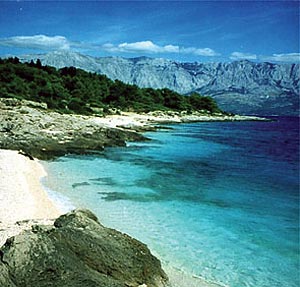Croatia

"Heaven on Earth"
Much has been said about the beauty of Croatia. "Heaven on Earth" has been described in many books by artists, in paintings and countless photographs. "God wanted to crown his creation, so on the last day he created the Croatian Adriatic from his tears, the stars and sea breeze", wrote an author long ago about the splendor of this most beautiful and preserved ecological corner of the modern world. Long beaches, rocky mountains within reach of the sea, fervent summers, untouched nature and unique city monuments have turned the vacations of many travelers into an exceptionally beautiful dream. It is often said that most travelers by chance stumble across the Adriatic. Every other visit discovers more of the diversity, blessedness and hospitality of this land. It would seem that we are not objective to those who have not visited this jewel of the Mediterranean. The only way to prove our objectivity is through ones own experience of the sea with its thousands islands.
Croatia covers an area of 56538 km2, and its territorial waters cover 31900 km2. The coastline including the islands is 5740 km long. According to the latest census, Croatia has a population of 4.8 million. More than 78% are ethnic Croats and Roman Catholicism is the prevalent religion (76.5 % of all inhabitants are Roman Catholics). The official language is Croatian, written in the Roman script. In the northern regions, the way of life is typically Central European, Whereas the South is Mediterranean.
Although there was an independent Croatian principality and Kingdom from the 9th to the 12th century, today's Croatia is one of the newest states in Europe. It adopted its constitution on 22nd December 1990, and was recognized internationally on 15th January 1992. The international recognition of its sovereignty and its acceptance into the membership of the UN in 1992 marked the end of a crucial period in the establishment of Croatia as a new state in the European and world community.
After the collapse of the communist regime in the democratic elections in the spring of 1990, Croatia became a parliamentary democracy, with a political system based on human rights, the rule of law, minority rights, private property, private enterprise and a free market economy, social justice and political freedom. its legal system conforms to modern European standards.
Croatia is rich in natural resources, and is determined to build its future on services and high technology. Its priority is the utilization of its maritime potential: above all, tourism, shipping and ship building.
The capital of Croatia is Zagreb, a city of one million inhabitants, the hub of Croatian culture, education and trade. The cities of Split, Zadar, Osijek and Rijeka also have universities.
The unit of Currency is kuna (KN).
source: Vela Luka website